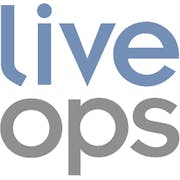As businesses strive to enhance customer experience, personalized interactions have become essential. An Interactive Voice Response (IVR) Software can help you achieve just that. With IVR, customers can seamlessly interact with your business using voice or touch-tone commands. This automated technology enhances customer satisfaction while reducing operational costs. The market is flooded with a myriad of options for interactive voice response systems, and choosing the right one can be daunting. In this guide, we'll equip you with all the necessary knowledge to make an informed decision with confidence. Let's dive in.
What is Interactive Voice Response (IVR) Software
Interactive Voice Response (IVR) Software is an innovative software solution designed to facilitate communication between companies and their customers. This type of software uses voice recognition, touch-tone keypads, and other advanced technologies to automate the process of interacting with customers. IVR Software is used by companies of all sizes and across various industries to improve customer service, streamline operations, and drive revenue growth. Here are some of the most common use cases for IVR Software: - Customer Service: IVR Software can help companies handle incoming calls more efficiently and direct them to the appropriate department or resource. This reduces wait times and ensures that customers receive the help they need quickly and efficiently. - Sales and Marketing: Companies can use IVR Software to engage customers in self-service marketing campaigns, including special promotions, product information, surveys, and more. - Payments and Billing: IVR Software can be used to automate the process of accepting payments and billing customers. This helps companies reduce manual processing time and minimize errors. - Appointment Scheduling: IVR Software can be used to enable customers to schedule appointments or access information about upcoming appointments. This saves time and reduces the risk of scheduling errors. - Surveys and Feedback: IVR Software can be used to conduct surveys and gather customer feedback. This can help companies better understand customer needs and preferences and improve their products and services accordingly. Various types of companies use IVR Software to enhance their customer service experiences and boost revenue. These can include businesses in the healthcare, finance, technology, retail, and telecommunications industries, among others. By automating customer interactions, companies can save time and money, while simultaneously providing a more efficient and effective service to their customers.
Benefits of Interactive Voice Response (IVR) Software
Interactive Voice Response (IVR) software has become a vital tool for businesses to create an efficient and comprehensive communications platform with their customers. In essence, IVR technology allows businesses to offer customers customizable and personalized interaction through speech recognition and touch-tone inputs. While there are many benefits to using IVR software, the following are the most significant: - Improved Customer Experience: IVR software can provide customers with 24/7 access to information and support, reducing wait times and frustration. Moreover, the use of speech recognition technology enables customers to interact with the system naturally and comfortably. - Increased Efficiency and Productivity: IVR software can handle the bulk of customer inquiries, freeing up agents to focus on more complex issues. This can significantly increase productivity and efficiency while reducing overhead costs. - Cost Savings: The use of IVR software can help businesses save money by automating common processes, such as payment processing, appointment scheduling, and information retrieval. Customers can access the necessary information or complete the transaction without the need for additional staff. - Advanced Analytics and Reporting: IVR software can capture valuable information regarding customer interactions, providing businesses with insights into customer behavior patterns, preferences, and emerging trends. - Scalability and Flexibility: IVR software is highly scalable, meaning businesses can easily add new features and services as required. The system can also be tailored to meet the specific needs of individual businesses. Overall, IVR software is a crucial technology that businesses can use to improve customer experience, increase productivity and efficiency, and cut costs. By implementing an IVR system, companies can provide an exceptional customer experience while also enhancing the overall efficiency of their operations.
Features of Interactive Voice Response (IVR) Software
Interactive Voice Response (IVR) software is an invaluable tool for businesses in a variety of industries. The software automates customer interactions, allowing callers to navigate through a series of menu options using their telephone keypad or voice commands. Here are ten common features of IVR software that can help businesses streamline their operations and improve the customer experience: 1. Automated Call Routing – IVR software can route incoming calls to the appropriate department or agent, improving efficiency and reducing wait times for callers. 2. Customizable Call Menus – IVR menus can be customized to match the needs of the business. This allows for faster and more accurate routing of callers. 3. Multi-Language Support – Companies that operate in multilingual regions can benefit from IVR software that supports multiple languages. This ensures that callers can interact with the system in their preferred language. 4. Integration with CRM Systems – IVR software can be integrated with Customer Relationship Management (CRM) systems, allowing for a more personalized and efficient customer experience. 5. Call Recording and Evaluation – IVR software can record and evaluate calls for quality control purposes. This feature can help businesses identify areas for improvement in their customer service operations. 6. Outbound Call Capabilities – IVR software can be used to automate outbound calls, such as appointment reminders or customer surveys. 7. Call Transcription – IVR software can transcribe calls for record-keeping purposes. This can be useful for businesses that need to keep detailed records of customer interactions. 8. Integration with Chatbots – IVR software can be integrated with chatbots to provide a seamless customer experience across multiple channels. 9. Real-Time Analytics – IVR software can provide real-time analytics on call volume, wait times, and other metrics. This information can help businesses make data-driven decisions to improve their operations. 10. Call Routing Based on Caller ID – IVR software can be configured to route calls based on the caller's phone number. This can be useful for businesses that want to provide targeted messaging to specific customer segments. In summary, IVR software can help businesses automate customer interactions and improve efficiency. With customizable menus, multi-language support, and integration with CRM systems, IVR software is a powerful tool for businesses of all sizes.
Considerations of Interactive Voice Response (IVR) Software
Interactive Voice Response (IVR) software is becoming an increasingly popular way for businesses to automate their customer support services. IVR software uses pre-recorded messages to provide customers with a range of self-service options. If you're considering purchasing IVR software for your business, there are several factors you should take into account. Firstly, you should consider the needs of your customers. What are the most common queries that your customers raise? What options would they like to see included in the IVR menu? Understanding your customers' needs will help you choose an IVR software solution that meets their requirements. Secondly, you should consider the level of customization that the software offers. Every business has unique requirements, and the ability to customize an IVR system can be crucial in meeting those requirements. Look for IVR software that allows you to create custom messages, record your own voice, and configure the system to match your brand's tone of voice. Thirdly, you should consider the level of integration that the software offers. Does the IVR software work seamlessly with your existing customer relationship management (CRM) system or with other third-party software that you use? Having an IVR system that integrates with your other business software can help improve efficiency and streamline your workflow. Fourthly, you should consider the level of scalability that the software offers. Can the IVR system be easily scaled to accommodate growth? As your business expands, you may need to add additional menu options or phone lines. Ensure that the IVR software you choose can be easily scaled to meet your growing needs. Fifthly, you should consider the level of analytics and reporting that the software offers. Analytics and reporting can provide valuable insights into the effectiveness of your IVR system. Look for IVR software that provides detailed reports on call volumes, menu options, and other key metrics that can help you optimize your IVR system for maximum effectiveness. In conclusion, when purchasing IVR software, consider the needs of your customers, the level of customization and integration, the level of scalability, and the level of analytics and reporting. Taking these factors into account can help ensure that you choose an IVR system that meets your business's needs and helps improve the overall customer experience.
Software Trends for Interactive Voice Response (IVR) Software
As we move further into 2023 and beyond, we can expect Interactive Voice Response (IVR) software to continue evolving with technological advancements. Some of the latest trends in IVR software include the adoption of more sophisticated natural language processing (NLP) capabilities. This will allow IVR systems to better understand and interpret customer speech, leading to more accurate and efficient call routing. Additionally, more IVR systems are likely to incorporate machine learning and artificial intelligence capabilities, enabling them to learn from past interactions and improve their responses over time. Another trend in IVR software is the increasing use of cloud-based technology. Cloud-based IVR systems offer enhanced scalability and flexibility, allowing businesses to easily adapt to changing customer demands. With cloud-based IVR solutions, businesses can quickly and easily expand or contract their call center capabilities as needed without having to make significant upfront investments in infrastructure. Moreover, self-service options within IVR are also set to expand. With the growing usage of chatbots and virtual assistants, IVR systems integrated with these technologies will become more common. This will allow callers to interact with the system in a more conversational way, using natural language and giving access to a wider range of information and services. Finally, security and privacy continue to be a major concern for businesses using IVR systems, with more focus on the importance of compliance with regulations such as the General Data Protection Regulation (GDPR) and the California Consumer Privacy Act (CCPA). In conclusion, we can expect IVR software to continue to evolve and improve in the coming years, incorporating the latest technologies and features to enhance the customer experience and optimize business efficiency.







